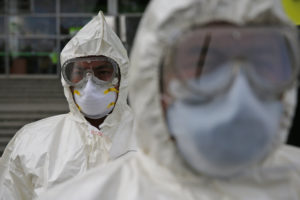MANILA, Philippines — Quarantine passes issued by village officials are only applicable within the barangay and will not be honored at checkpoints established by the national government.
National Capital Region Police Office (NCRPO) chief Maj. Gen. Debold Sinas issued this clarification on Friday, adding that issuance of quarantine passes is not a national policy imposed by the Inter-Agency Task Force on Emerging Infectious Diseases (IATF) and that such a ticket shall only be used exclusively within the barangay.
He also stressed that since issuance of quarantine passes was merely the policy of the barangay, it cannot be used to go beyond the checkpoints established by the national government to enforce the enhanced community quarantine in Luzon.
“Ang quarantine pass is not a national policy so, therefore, kung may quarantine pass ka at nakadaan sa checkpoints at kung hindi ka authorized na lalabas, hindi ka papalabasin sa checkpoints,” he said
(The quarantine pass is not a national policy so, therefore, if you have a quarantine pass and you plan to cross checkpoints and you are not among those authorized to go out, you will not be allowed beyond the checkpoints.)
“Ang quarantine pass sa isang lugar lang ‘yan, pero ‘pag lumabas na ‘yan sa border control points natin hindi ‘yan same passage,” he added.
(The quarantine pass is only for one specific area, it does not have the same passage ourside border control points.)
Under the IATF guidelines, those allowed to go out while Luzon is under an enhanced community quarantine are frontliners in the battle against COVID-19. These people include healthcare workers and employees in banks, supermarkets or groceries or convenience stores or public market vendors, drugstores, restaurants, telecommunications, water companies or water refilling stations, gas stations, funeral services, and media personnel, among others.
READ: LIST: Persons authorized to go out during Luzon-wide lockdown
Meanwhile, Sinas assured that all police officers at various quarantine control stations are being checked by their health service department and given vitamins and other types of medicines to ensure the health of law enforcers.


